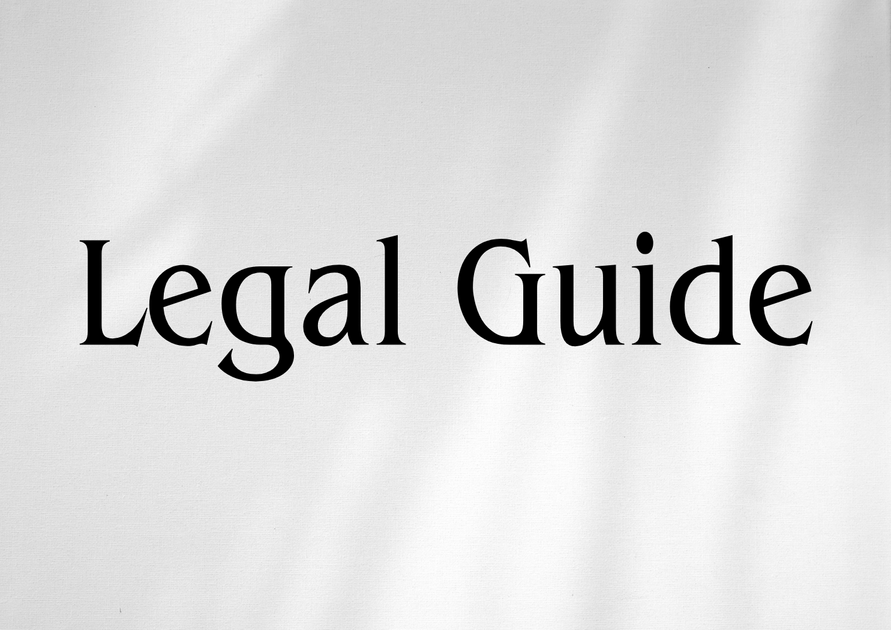Introduction: Making the Right Choice Between Professional and Commercial Licenses in the UAE
As the United Arab Emirates (UAE) continues to cement its position as a regional and global business hub, understanding the complexities of business licensing is paramount for entrepreneurs, companies, and legal practitioners alike. The distinction between a professional license and a commercial license is not merely semantic; it has far-reaching legal, operational, and strategic consequences for businesses seeking to operate in the UAE. In light of recent regulatory updates, particularly the enforcement of Federal Decree Law No. (32) of 2021 on Commercial Companies (as amended in 2022 and 2023), and the enhanced focus on compliance by the UAE Ministry of Justice and other key authorities, it has never been more critical for businesses—whether startups, multinationals, or independent professionals—to correctly interpret licensing requirements and select the structure best aligned with their activities and ambitions.
This article delivers a detailed, SEO-optimized, and consultancy-grade analysis of the legal distinctions between professional and commercial licenses in the UAE. We will examine current legislative frameworks, compare old and new regulations, analyze real-world applications, and provide actionable insights and compliance strategies catering to business owners, executive teams, HR managers, and legal advisors operating within the UAE’s dynamic legal environment.
Table of Contents
- Overview of UAE Business Licensing: The Evolving Legal Framework
- Definitions and Legal Characteristics: Professional vs Commercial License
- Regulatory Framework and Authority Oversight
- Legal Comparison: Structures, Ownership, and Liabilities
- Case Studies and Hypothetical Scenarios
- Compliance Essentials: Risks of Non-Compliance and Strategic Guidance
- UAE Law 2025 Updates and Ongoing Legal Reforms
- Conclusion and Best Practices for Proactive Compliance
Overview of UAE Business Licensing: The Evolving Legal Framework
Significance of Licensing for Business Legality and Operation
Operating a business in the UAE requires strict adherence to the licensing regime enforced by federal and emirate-level authorities. The choice of license type not only determines the permissible business activity but also impacts legal form, ownership structure, and regulatory obligations. The legal terrain has witnessed significant advancements with regulations such as UAE Federal Decree Law No. (32) of 2021 on Commercial Companies and corresponding cabinet resolutions guiding the issuance and oversight of business licenses.
Why This Topic Matters in 2025
The UAE continues to update its legal framework to reinforce investor confidence, drive economic diversification, and ensure robust compliance. The Dubai Department of Economy and Tourism (DET), Abu Dhabi Department of Economic Development (ADDED), and similar entities in other emirates actively collaborate with the Ministry of Justice and the Ministry of Human Resources and Emiratisation (MOHRE) to ensure licensing aligns with best international practices. Choosing between a professional and a commercial license can affect eligibility for foreign ownership, designation of local sponsors or agents, scope of permitted activities, corporate governance, and taxation. These impacts are accentuated by heightened regulatory scrutiny and the increasing sophistication of enforcement mechanisms.
Definitions and Legal Characteristics: Professional vs Commercial License
A. The Professional License: Legal Foundation and Scope
A professional license in the UAE authorizes individuals or companies to offer services that rely predominantly on intellectual effort, specialized knowledge, or artistic talent rather than commercial trade or the sale of goods. Typical activities under this license cover consultancy, legal practice, auditing, medical services, engineering, IT solutions, and design. The legislative basis derives from Federal Law No. (5) of 1985 concerning Civil Transactions, as well as emirate-specific guidelines (e.g., Dubai Law No. 13 of 2011 on Business Licensing).
B. The Commercial License: Legal Basis and Scope
Conversely, a commercial license is designed for entities engaging in trading activities—buying, selling, or distributing goods, import/export, logistics, real estate brokerage, and general commerce. The issuance of this license is governed primarily by Federal Decree Law No. (32) of 2021 On Commercial Companies and associated implementing regulations at the emirate and free zone levels.
C. Key Legal Distinctions: Comparative Analysis Table
| Aspect | Professional License | Commercial License |
|---|---|---|
| Primary Activity | Services/Skill-based (medicine, law, IT, consulting) | Trading or commercial enterprise (goods, brokerage, import/export) |
| Ownership Structure | Full foreign ownership possible; typically sole proprietorship or civil company | Full foreign ownership in many sectors (post-2022 reforms); LLCs require 1-50 partners |
| Local Sponsor/Service Agent | UAE national as service agent (not shareholder); does not hold equity or profit share | Before 2021 reforms: 51% UAE national required; Now, many sectors allow full foreign ownership |
| Applicable Law | Federal Law No. (5) of 1985, Emirate-level licensing | Federal Decree Law No. (32) of 2021 on Commercial Companies |
| Liability | Unlimited for sole proprietors; Civil companies: partners liable | LLCs: liability limited to share capital |
| Allowed Activities | Service provision, consultancy, professional practice | Commercial trading, brokerage, merchandise activities |
| Audit and Bookkeeping | As per relevant professional standards; may require audit for civil companies | Mandatory audit for LLCs under Article 27 of CDL32/2021 |
Regulatory Framework and Authority Oversight
Federal Decree Law No. (32) of 2021 and Sectoral Regulations
The introduction of Federal Decree Law No. (32) of 2021 (Commercial Companies Law, as amended in 2022 and 2023), marked a paradigm shift in business regulation within the UAE. Key features include:
- Liberalization of foreign ownership in many business sectors (except strategic impact activities as listed by the UAE Cabinet).
- Clarified definitions and requirements for various license types (professional/civil vs. commercial/trading).
- Enhanced corporate governance and licensing oversight by local Departments of Economic Development and free zone authorities.
- Stronger compliance mechanisms, with significant penalties for operating without proper licensing under Article 357 of the UAE Penal Code and commercial companies law.
Relevant Authorities
Licensing is administered by both federal and emirate-level entities. Primary governmental bodies include:
- UAE Ministry of Justice: Oversight of professional licensees in legal, consultancy, and audit sectors.
- Ministry of Human Resources and Emiratisation (MOHRE): Regulates employment and labour compliance for all UAE businesses.
- Department of Economy and Tourism (DET) – Dubai, DED (Other Emirates): Responsible for primary license issuance, compliance, and enforcement.
- Free Zone Authorities: E.g., DMCC, DIFC, ADGM – operate their own regulatory regimes, albeit aligned with federal principles.
Suggestion: Incorporate a process flow diagram here depicting the typical steps for obtaining each license type.
Legal Comparison: Structures, Ownership, and Liabilities
1. Corporate Structures: What Is Permitted?
Professional licenses generally allow operation as a sole proprietorship or civil company (partnership). For commercial licenses, the most common structure is the Limited Liability Company (LLC), although other forms persist (PJSC, branch, etc).
2. Foreign Ownership: Pre- and Post-2021 Decree Law Comparison
| Year | Professional License | Commercial License |
|---|---|---|
| Before 2021 | Commonly 100% foreign ownership (with individual or civil company forms) | 51% UAE national sponsor mandatory (except in free zones) |
| 2021 Onwards | Still full foreign ownership; service agent needed for some categories | Full foreign ownership in most non-strategic sectors (Cabinet Decision No. 16 of 2020 and subsequent resolutions) |
3. Liability and Compliance: What Are the Risks?
With a professional license, sole proprietors and partners in civil firms bear unlimited personal liability for obligations arising from the business, unless the activity is incorporated as a separate legal entity in a free zone. In contrast, LLCs operating under a commercial license provide shareholders with limited liability, restricted to their share capital investment (Article 71, CDL 32/2021). Failure to structure your business appropriately, or to migrate to the new licensing frameworks, can expose business owners to civil, commercial, and criminal liability, including significant fines and administrative sanctions.
Example of Penalty Comparison Table
| Non-Compliance Type | Professional License Penalty | Commercial License Penalty |
|---|---|---|
| Operating without valid license | AED 50,000 to 100,000 fine; business closure | AED 50,000 to 200,000 fine; blacklisting, closure |
| Incorrect activity classification | License suspension; financial penalty | License suspension; trade license revocation |
| Non-compliance with MOHRE employment rules | Administrative sanctions; ban on future employment visas | Administrative sanctions; blacklist; criminal action for grave breaches |
Case Studies and Hypothetical Scenarios
Case Study 1: The Consulting Startup
Scenario: An expatriate management consultant wishes to start a consultancy in Dubai. They are weighing the merits of a professional versus a commercial license.
Analysis: Since the core activity is advisory—reliant on expertise, not the sale of physical goods—a professional license is appropriate. Full foreign ownership is available. The consultant appoints a UAE national service agent (not a shareholder), thereby remaining compliant with UAE licensing laws while retaining full control of operations. Had the consultant incorrectly applied for a commercial license, MOHRE may flag this as an incorrect activity classification, resulting in penalties.
Case Study 2: E-commerce Platform Launch
Scenario: A technology entrepreneur based in Abu Dhabi seeks to establish an online platform that retails products sourced from global suppliers.
Analysis: Because the business involves trading activities, the entrepreneur must pursue a commercial license. Post-2021 reforms allow for 100% foreign ownership in most sectors, subject to local ADDED verification. Engaging in trading under a professional license would violate Federal Decree Law No. (32) of 2021, with substantial fines.
Case Study 3: Architecture Firm as Civil Company
Scenario: Two engineers, both expats, wish to jointly operate an architectural service in Sharjah.
Analysis: This falls under a professional activity. The business can be structured as a civil company under a professional license. Partners share unlimited liability unless otherwise incorporated as a limited liability entity in certain free zones. Assigning a service agent (UAE national) is necessary for regulatory approvals and government relations, but the agent does not share in profit or management.
Key Consultancy Insight
Misalignment between actual business activity and license classification can result in financial loss, regulatory intervention, and reputational harm. Legal consultancy is essential at both the business planning and renewal stages to avoid inadvertent exposure to penalties.
Compliance Essentials: Risks of Non-Compliance and Strategic Guidance
What Are the Main Risks?
Both license types demand rigorous, ongoing compliance:
- Engaging in business activities beyond those specified in the license is strictly prohibited (Article 7, CDL 32/2021).
- Employing staff inconsistent with licensed activity can trigger MOHRE sanctions.
- Changes to company ownership, shareholding, or business address must be promptly reported to licensing authorities.
- Non-compliance may result in fines, withdrawal of license, and blacklisting of shareholders or partners.
Compliance Checklist Table
| Compliance Item | Professional License | Commercial License |
|---|---|---|
| Annual license renewal | Required; update on personnel and service agent | Required; report any changes in partners/shareholders |
| Audit/reporting | Recommendation for civil companies (mandatory if under regulatory body) | Mandatory for LLCs per Law 32/2021 |
| MOHRE registration | Required if employing staff | Required |
| Service agent/sponsor | Required for some categories | Only in certain sectors as per Cabinet Resolution |
Strategic Guidance for Businesses
- Clearly identify your business activity and select the appropriate license at the planning stage.
- Engage legal counsel to review intended operations against the most recent Cabinet Decisions (notably Decision No. 16 of 2020 and subsequent updates).
- Monitor regular updates from official sources including the UAE Government Portal, Ministry of Justice, and Department of Economy and Tourism.
- Institute internal controls to track compliance deadlines, personnel changes, and business activity modifications.
UAE Law 2025 Updates and Ongoing Legal Reforms
Recent Legal Developments Influencing Licensing
- Ongoing refinements to the list of strategic impact activities (see Cabinet Resolution No. 58 of 2020, updated through 2023).
- Further facilitation of digital, remote, and freelance licensing to support new economy sectors (e.g., freelance license mechanisms introduced by various emirates).
- New guidance for audit and professional standards imposed on licensed companies, aligning with best practices outlined by the UAE Ministry of Justice and international authorities.
- Integration of electronic licensing and compliance inspections (DET Smart Services 2023+).
Suggestion: Visual timeline charting major legislative and regulatory changes (2018–2025).
Comparing Old and New Law: Impact on Foreign Investors Table
| Parameter | Old Regime (pre-2021) | Current Regime (2021–2025) |
|---|---|---|
| Foreign Ownership (Commercial) | Max 49% (except Free Zones) | Up to 100% in most sectors |
| Service Agent in Professional Firms | Mandatory for all professional firms | Optional in some emirates/sectors |
| Renewal and Reporting | Manual, fragmented systems | Smart services, integrated portals |
| Regulatory Overlap | Multiple authorities; slow coordination | Streamlined digital systems; improved inter-agency data sharing |
Forward-Looking Perspective: What to Expect
The UAE’s ambitious Vision 2031 initiative, coupled with mounting global compliance expectations and technology-driven regulation, are expected to further refine licensing regimes for both professional and commercial businesses. Regulatory convergence and simplification, combined with strong enforcement, will continue to shape a clear, competitive, and globally attractive business environment.
Conclusion and Best Practices for Proactive Compliance
Selecting the correct license—professional or commercial—is no longer a mere administrative formality but a foundational strategic decision that affects every aspect of business operation and risk profile in the UAE. Recent legislative reforms, particularly those introduced through Federal Decree Law No. (32) of 2021 and Cabinet Resolutions up to 2025, equip business owners with new opportunities, but also greater compliance responsibilities.
To capitalise on the UAE’s progressive legislative climate while mitigating risk, businesses are advised to:
- Invest in expert legal consultation before choosing or amending their license status.
- Remain vigilant of sector-specific and cross-emirate differences in licensing interpretation and enforcement.
- Maintain robust governance and compliance systems aligned with current UAE legal standards.
- Stay informed of latest legal amendments through the UAE Legal Gazette and official ministry portals.
- Adopt digital compliance tools to streamline reporting and renewal obligations.
The coming years will see a further maturing of the UAE legal and regulatory landscape. Businesses that prioritize careful license selection, proactive compliance, and ongoing legal advice will be well-positioned to thrive, while those who neglect statutory updates risk disruption, sanction, or exclusion from the market. A trusted legal partner can provide the tailored guidance required to navigate this landscape with confidence and foresight.




